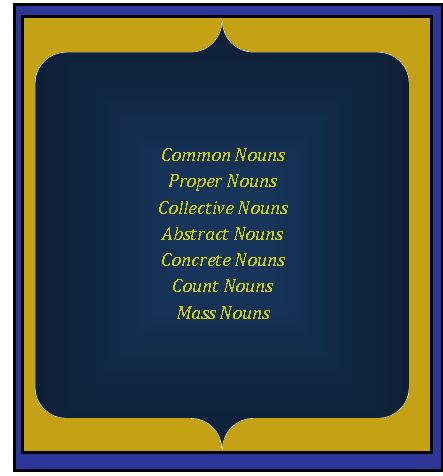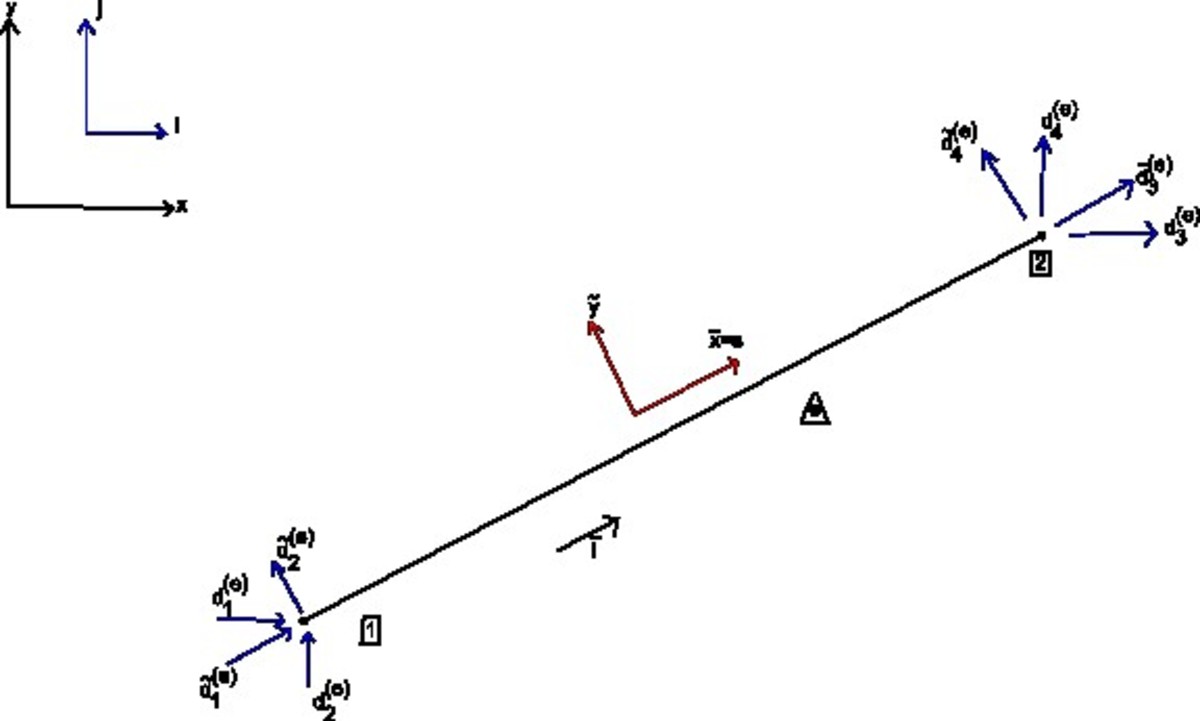Identifying the 7 Noun Forms

By Joan Whetzel
Most students can tell you that a noun is a person, place, or thing. At its most basic definition, this definition is a good one. However, this very important part of grammar has 7 very distinct forms, or classifications in the English language. They are distinguished by usage into one of the following classifications: common, proper, collective, abstract, concrete, count or mass nouns.
Common Nouns
Common nouns fit into the basic definition (person, place, or thing) quite nicely, as common nouns are quite generic nouns. Examples of common nouns are: boy, man, house, home, bridge, tunnel, rock, air, metal, and the like. The lack any identifiers that would distinguish them as a specific person (President Lincoln), place (Washington DC), or thing (The Holland Tunnel). Common nouns could refer to any generic person, place or thing.
Proper Nouns
Proper nouns are specific names used to indicate a precise people, places or things and are usually capitalized. Names for people might include, Queen Elizabeth or Benjamin Franklin, for places may comprise places for like the White House or the London Bridge, and for things might consist of such name brands as Nabisco, Apple Computers, and Amtrack Railroad. The term proper noun implies a proper name, and the two are used interchangeably.
Collective Nouns
Collective nouns stand for groups of things, people, or places such as a flock (of pigeons), a crowd (of people), a pack (of cards), a bushel (of apples). The collective noun, though it represents a collection of items are actually singular words. That pack of wolves has many wolves the pack acts as a singular unit.
Abstract Nouns
Abstract nouns imply intangibles like redemption, power, freedom, spirit, belief. Each of these rather elusive concepts can be defined, but are they do not take on solid form; they are not visible, touchable, smellable, auditory, or tasteable.
Concrete Nouns
Concrete nouns are the opposite of abstract forms. They apply to any thing that can be felt (rocks), seen (colors), smelled (cinnamon rolls baking in the oven), heard (babies crying in the confines of an airplane), or tasted (tart apple pie, in a crispy crust, with scoop of smooth, sweet vanilla ice cream melting along side of it). Concrete nouns are tangible items that can be take in through the senses.
Count Nouns
Count nouns indicate the number of items, places or people being discussed. A baker’s dozen of donuts indicates 13 donuts, seventh heaven would seem to indicate that there were 6 other levels of Heaven below it, and Pope Pius the sixth is the sixth Pope using the name Pius. An “s” or “es” is added to pluralize count nouns as in pairs of earrings (there is more than one pair) or States of the Union (there’s more than one state).
Mass Nouns
Mass nouns, like count nouns, indicate groups of items, people, or places, though the exact quantity is not usually given. For instance the noun water could mean an ounce, a gallon, or an ocean full of water. Lumber could include a couple of boards or enough to build an entire house. Mass nouns like clutter, flour, sand, wood and the like seem to indicate that there is more than one unit or piece, but the mass of items or people were never counted.
Some sub-classifications of nouns include compound nouns (two or more words are joined together, i.e. textbook), nouns indicating gender (steward vs. stewardess), nouns that are gender neutral (i.e. firefighter, police officer), irregular nouns (nouns that change form as they become plural such as foot to feet, or child to children) and possessive nouns (which add an apostrophe and an s to show possession). Generally speaking, though, common, proper, collective, abstract, concrete, number and mass nouns are the 7 recognized noun classifications.





